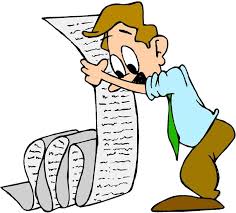Is there too much to do? Are you not getting enough done?
Do you jump from task to task on your to-do list but never seem to make progress on your main writing goals?
Is your dissertation still on your to-do list?
As a client said to me, “Which end of the tube am I squeezing?”
So what’s undercutting your progress on your writing?
Add-On’s
At your day job, people are sick or on leave, and you’re expected to pick up the slack. So you stay late. If you’re teaching, a student needs extra mentoring. There are last-minute requests for letters of recommendation. And then you get into your car to drive home, only to find yourself in an extended traffic jam, once again.
Two extra hours here, two there, and suddenly you’ve forgotten about your own priorities.
Have you agreed to additional responsibilities without checking your schedule or without carving space for the new add-on’s? Or have those extra responsibilities not even registered for you as time-sucks?
Family Matters
Spring here in the U.S. often brings additional activities, primarily more activities for your kids. So the questions…and conflicts…arise: Who is driving the kids to their newly added activities? Are you changing your work schedule in order to take care of the kids? Are you going to be able to stay and watch them do these activities? 
Or perhaps your kids need or want to change their plans. And they need or want to change what you thought was already decided.
Misunderstandings, disputes, and debates can arise from too many issues being handled on the fly. Phone calls or a voicemail message can precipitate problems or unexpected responses. Dealing with those problems and, perhaps, with your own emotions as well require more of your time.
You have the energy and know-how to orchestrate work, family life, dissertation or writing project. However, if you’re juggling so many things, you may feel that there’s no time for a miscalculation. Remember that things don’t have to be perfect. If there is a problem, you can problem-solve.
Ah, yes, the dissertation… How about Intervals?
Your to-do list is so big.
Parenting is so big.
The commute and the job are so big.
But what about the writing?
Has your dissertation moved lower and lower on your list? It’s time to get it back at the top of the list. Decide what specific writing task you can do this week. Look for chunks of available time each day and write that task on your calendar. Decide that you can do a good-enough job during those small chunks of time.
Time to Power Up
Have you done intervals in your exercise routines? Intervals are a simple but effective way to boost your exercise by “alternating bursts of intense activity with intervals of lighter activity.” The benefits are that you burn more calories in a shorter amount of time and improve your aerobic capacity.


Reframe your view of your day—look at it as if you’re doing intervals. You move easily from one task to another, increasing your tempo when you want to move through a task more quickly and then slowing as you move to a less demanding activity. You can apply that same interval method to your writing.
If you could get more writing done in a shorter amount of time, what’s not to like about that? Let’s give it a try.
How much writing can you do in a short amount of time? Push yourself, knowing that you only have to work at this level of intensity for a selected period of time. You set the amount of time. Keep going until the time is up. Then slow down, go over what you’ve written, and plan the next sprint. Some writers object to this kind of writing because they say they have to write slowly. But perhaps those writers have no other job or they aren’t juggling as many responsibilities as you. You need to use your writing time as efficiently and productively as you can.
You make efficient use of your time in all sorts of ways during your day, and you can do that with your writing, too.
Of course, you need to be flexible. The chunk of time you thought was yours may slip away from you because of a request at work or from a family member.
But watch that procrastination isn’t masquerading as flexibility.
Protect the small chunks of writing time. 
Setting small daily writing goals as priorities will result in progress.
What do you do to help you prioritize your writing and boost your writing efficiency? I’d love to hear from you.
All good wishes to you for great writing in April,
Nancy
Nancy Whichard, Ph.D., PCC
Your International Dissertation Coach and Academic Career Coach
www.smarttipsforwriters.com
www.dissertationbootcamp.net
www.nancywhichard.com
nancy @ nancywhichard.com
Read Full Post »


